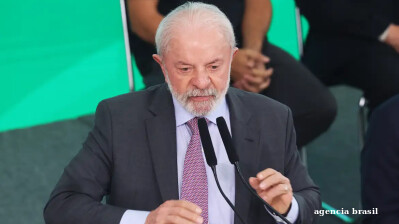Brazilian President Luiz Inácio Lula da Silva has voiced optimism that his country will secure a trade agreement with the United States following talks with President Donald Trump, as Washington simultaneously stepped up engagement with Brazilian mining executives to discuss rare earths supplies.
"He [Trump] assured me that we are going to have an agreement," said Lula after encountering the US leader on the sidelines of a Southeast Asian regional summit in Malaysia on October 26.
The Brazilian President characterised the meeting with Trump as a "very good meeting," expressing strong confidence that resolution will emerge within days.
Trump reciprocated the positive assessment, telling reporters aboard Air Force One en route to Tokyo: "We'll see what happens. They'd like to do a deal. I think we should be able to make some good deals for both countries.”
Lula disclosed he presented Trump with written documentation outlining arguments against US tariff increases, acknowledging Washington's right to impose such measures while contending the decision rested on "mistaken information.”
Still, Trump did not commit to suspending the tariff increases nor raised conditions during their discussions.
"He guaranteed to me that we will reach an agreement. I am very confident that in a few days we will reach a solution," Lula said.
The Trump administration imposed 40% tariffs on Brazilian products in July atop a 10% levy implemented earlier. Washington justified the move by stating that Brazil's policies and criminal prosecution of former president Jair Bolsonaro, a close Trump ideological ally, constitute a "witch hunt" warranting punitive economic measures.
Bolsonaro was recently convicted of attempting a coup following his failed re-election bid in 2022, with a Brazilian Supreme Court panel sentencing him to approximately 27 years imprisonment.
Lula pointed out that the former far-right president received fair judicial proceedings and his case should not factor into trade negotiations.
He also reminded Trump that Brazil ranks amongst three Group of 20 industrialised and emerging-market nations with which the US maintains a trade surplus. Washington recorded a $6.8bn trade surplus with Brazil last year, according to Census Bureau data cited by AP.
The Brazilian leader additionally offered to mediate in the Venezuela crisis. President Nicolás Maduro, who had a close relationship with Lula before the July 2024 disputed election, has accused the US of seeking regime change after Washington deployed the world's largest warship off the country's coast amid intensifying tensions in the Caribbean.
Separately, US Chargé d'Affaires in Brazil, Gabriel Escobar, conducted meetings with mining executives during an industry gathering on October 28 to discuss rare earths, a source with knowledge of the matter told Reuters.
The meetings occurred on the sidelines of an event in Salvador, located in the northeastern state of Bahia.
Rare earths are anticipated to feature in negotiations between the US and Brazil aimed at removing tariffs imposed by Trump on Brazilian goods. Brazil holds the world's second-largest rare earths reserves after China, potentially providing significant leverage in discussions about critical minerals used in electric vehicles, advanced weapons systems and medical devices.
Lula, who marked his 80th birthday on October 27 and recently announced his intention to seek a fourth term in next year's election, said he felt at a "high point of his life" and expressed hopes to live to 120 years old. He attended annual summits held by the Association of Southeast Asian Nations as a guest of chair Malaysia, which seeks to deepen regional trade links with Latin America.
From aboard Air Force One, the 79-year-old Trump wished Lula a happy birthday, describing the Brazilian president as "a very vigorous guy” and adding: “I was very impressed.”
The meeting in Kuala Lumpur represented the first substantive bilateral discussion between the leaders since relations deteriorated sharply following Trump's July announcement of punitive levies on Latin America's largest economy.
Since then, higher US tariffs on Brazilian goods have reshaped the global beef trade, pushing up American prices and encouraging triangulation via third countries such as Mexico, whilst Brazilian exports to China continue expanding.
News
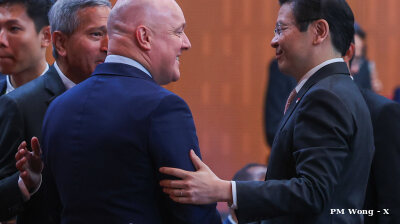
Singapore PM Lawrence Wong heads to APEC in bid to deepen Seoul ties
The visit will be Wong’s first trip to South Korea since he assumed office in May 2024, and the first by a Singaporean prime minister since 2019 – in part to recognise the 50th anniversary of diplomatic relations between the two nations.

US–South Korea investment deal on ice – for now
After a triumphant round of investment pledges in Tokyo, Donald Trump’s state visit to South Korea presents a far more challenging negotiation.
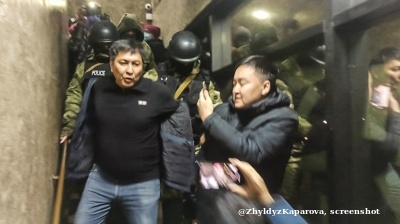
Kyrgyzstan bans three media titles as “extremist organisations”
Populist-nationalist president Sadyr Japarov, due to meet Donald Trump next week, denies introducing authoritarian controls.
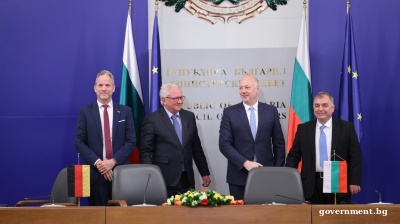
Bulgaria signs landmark deal with Rheinmetall to build ammunition plant
Investment reflects Bulgaria’s growing role in Europe’s rearmament drive and Nato’s efforts to strengthen regional defence supply chains and cut reliance on external suppliers.
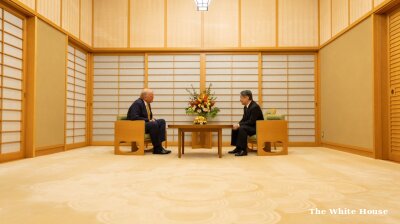

.jpg)
_1761305900.jpg)
